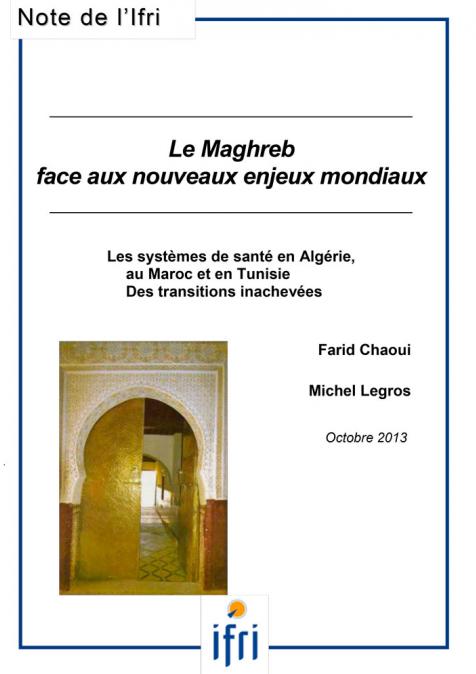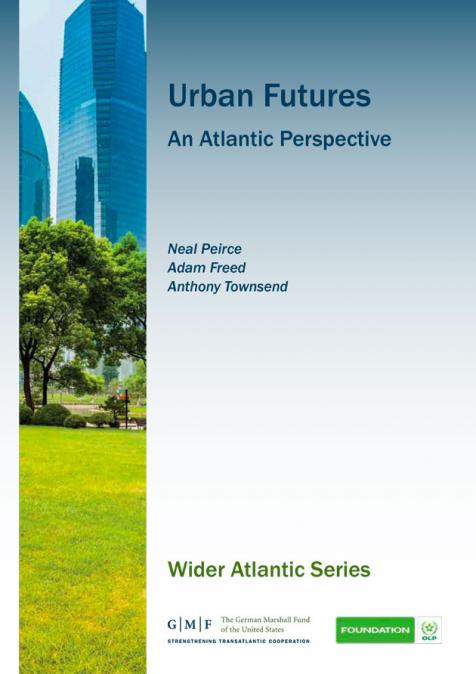Publications /
Opinion
The European Union is presently presenting itself to the world in a confused state or, should we say, in a bewildered, uncertain and troubled state. The Brexit, the painful and difficult divorce of Britain from its continental partners, is preoccupying the minds, not at least since the government in London has yet to decide either it accepts or refuses several million of Europeans settled in the UK, protecting them and securing their future. And London still is undecided about how, at the end, its relationship with Europe will look like. These are only a few of the issues. If only it could be effortless to unite the remaining European Union, 27 nations in all. Catalonia challenges Madrid with its separatist demands, Corsica provokes Paris with, at times, violent outburst and insistence on more autonomy, but the governments resist because there are constitutions to respect, history and the will of the majority. Then we have to deal with millions of refugees escaping from war and famine. The migrants, the difficult integration, the rise of populism, racism, nationalism, the demand for troops to be stationed at the borders, and higher walls to be build, even higher than the one Donald Trump wants to erect between the US and Mexico (on 1954 miles, about 3000 kilometers, the distance from Rabat to Dakar).
The traditional parties, the conservatives, socialists, social democrats and ecologists, all are under pressure since populism is not waning and not disappearing like a nightmare after a heavy meal. The radical fringes are growing and terrorism is a feared threat. Right and left. Fascist. Secessionist. Islamic Jihad. The people of Europe, too many of these nations, are troubled by the arrival of endless waves of refugees, those escaping wars and others fleeing misery, poverty and starvation. The Germans decided to continue to accept 180 000 to 220 000 migrants per year, a generous figure since registering more than 1.3 million asylum seekers since 2015 makes swift integration quite difficult. And more complicated: until the month of March, at the earliest, there won’t be a new Berlin government in power, if at all. The 465 000 members of the SPD will decide by written vote whether they want their party to govern Germany with the conservative CDU of Angela Merkel, or remain in opposition. If they decline to govern, new national elections will be probable, with possible sobering results. In the newest opinion polls the extreme right wing, the Anti-immigration party AfD (Alternative fuer Deutschland) is supported by 16 percent of the population, these figures though certainly could catapult into unknown heights and consequences. 16% may not be alarmist since Marine Le Pen in France, after all, was a Presidential candidate. 10 .6 million French citizens voted for her extreme anti-Europe and anti-immigration program, which represent 33.9% of eligible voters. How will the nation, how will Europe react if the Right wing party in Germany is passing the Social Democrats in votes?
It would be a national nightmare. Germany has forever to deal with and to consider its history, dominated by racist nationalists, Hitler- Germany floating for a dozen years on a wave of insanity into annihilation of human minds and culture. The Berlin government is, and that is understandable, troubled by dramatic political changes in European countries like Poland for example, or Hungary, where immigrants are not welcome, and where despite all European treaties and agreements, reactionary and extremist laws are passed. Austria is falling in step with these repressive partners, despite of all their strong Catholic Christian values. Italy, another Catholic country, is facing an election in a few weeks and it seems like the nationalist anti -immigration party “Five stars” is conquering power. One man, who is trying to prevent the collapse of political sanity in Italy, cannot be elected as Prime Minister, although he ran Italian governments three times already-Silvio Berlusconi. The conservative billionaire has been excluded from Parliament (until 2019) because of a fraud conviction, which meant jail. The political veteran who disapproves of Trump was spared time behind bars because of his age, 81. Not a young man to run a government, but “Nono” as he is teased by his people, the now mellowed “ grandfather”, tries to be the kingmaker, preventing the right wing to grab too much of the governmental power, which would mean another setback for besieged democracies in Europe. Whether we like it or not, Trump is sending through his radical and brash political decisions many negative signals to the world, by blaming globalization for nations problems, by pulling out of international agreements at precisely the moment cooperative efforts are most needed, or by accusing migrants for crime (contradicted by statistics). He is also advocating for protectionism and threatening a trade war with nations like China by imposing tariffs on steel imports, 50% on washing machines and 30% on imported solar cells.
The German chancellor, who is managing the countries affairs for 12 years now, is apparently putting her faith into one man, a young talented and inspiring politician- Emmanuel Macron, just 4O, admired for his intellectual approach, and particularly for his engagement to give lame Europe a modern outlook, a new structure and more unity. The former banker, who was for two years minister of economy in the socialist government of Francois Hollande, surprised and impressed Europeans like Ms Merkel with his constructive pro-European speech at the Sorbonne University in September 2017. No other country asked the French newcomer to lead Europe out of its political division and depression, but Macron just turned into a leader, sharing his views with Merkel who is a trusted partner, possibly his only one in Europe.
His “world embracing politics set him up”, judges the “New Yorker” who considers Macron “as an ideal foil to Donald Trump’s isolationist outlook”. In April, the world can observe the contrasting political styles and personalities once again. Macron will indeed visit the White House, and possibly be quizzed by Trump about the military parade on Bastille day in Paris, which impressed the American President enough to demand the Pentagon to plan a similar parade in Washington, a thought even ridiculed by US generals. Writer Adam Copnik , who wrote at length on Macron, the uncrowned European leader, was impressed by “the specific voice and tone of the best of the French haut-fonctionaire class, the administrative and managerial actors of the French republic”. For the “New Yorker” Macron is “neither left nor right nor center, he is merely and entirely haute”. Critics accuse the French head of state as a loof, drawn to wealth and fame, preferably entertaining world leaders as Putin in the Chateau of Versailles. Yet, the French President is also an ambitious involved politician actively searching for solutions to curtail or slow down consequences of the globalization, which led to “an unsustainable Darwinian struggle”. In other words: to short-term profits for a few, the upper one percent, and to an increasingly unjust distribution of wealth.
In his speech at the” World Economic Forum” in Davos, Macron did not hesitate to deplore the significant crisis of globalization which, in his opinion, “can only be met with a collective, multilateral effort”. He stated: ”France is back at the core of Europe, because there can’t be French success without European success”. The skillful and talented politician proposed in Davos a “new foundation of Europe”. He thinks that in 2018 the Europeans should fix some short-term issues on energy, digital technology, migration and investment. His priority is the design of a ten year strategy for Europe, a blueprint for the future including relationships with China and the USA. ”Our vision, our DNA in terms of the relationship between freedom, justice, fairness and individuals rights, are unique. This balance of values only exist in Europe”. A stronger Europe and a multilateral approach to globalization are needed” to avoid the fragmentation of the world. How though will the meritorious Macron be able to overcome the contradiction between “Globalization” and “Multilateralism”? How is it possible to sustain unrestricted growth and profit, without endangerment of voter’s trust in equal distribution of wealth? Macron admitted flaws in globalization and the utopian dream of integrating the whole world into one model of growth and wealth. He said that “economic growth is not an end, it remains a means. The desire for economic growth has sometimes made us forget what people are prepared to accept to obtain it”.
The French President demanded the European countries to start working together, as 27, since a relapse into sterile nationalism, incapable of addressing the real challenges, would be a danger for the fragile and troubled coherence of Europe. The world, Macron stated, is fragmented by a series of new economic and geopolitical phenomena, some of which could have been anticipated, ad he said: “we were certain taht more growth will resolve all the problems”. As the meritorious Macron admitted, “many governments are tempted to respond to the fears and uncertainties of citizens with a simplistic approach : you are right ,this is not okay, we are going to close the border”. The French president concluded: ”even in France, if I do not give meaning back to this globalization” and fail to convince the sceptics, the in “five, ten or fifteen years, the nationalists, the extremists and those suggesting to leave the system will win, and that will be true in every country”.











